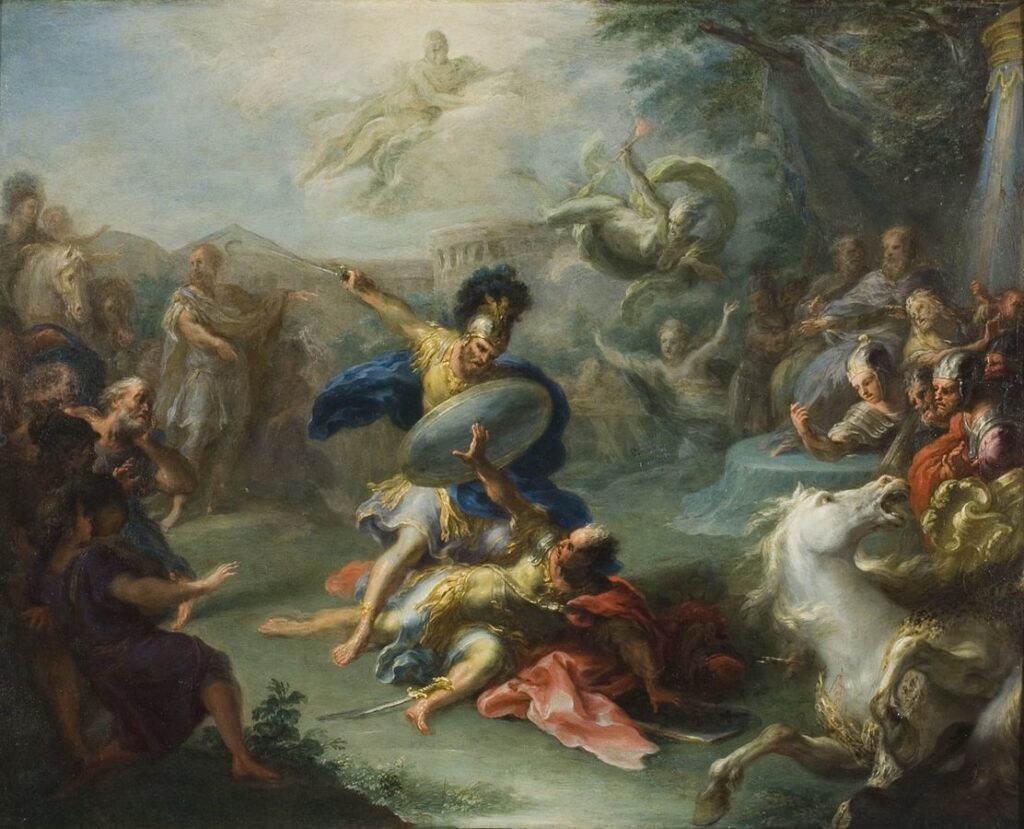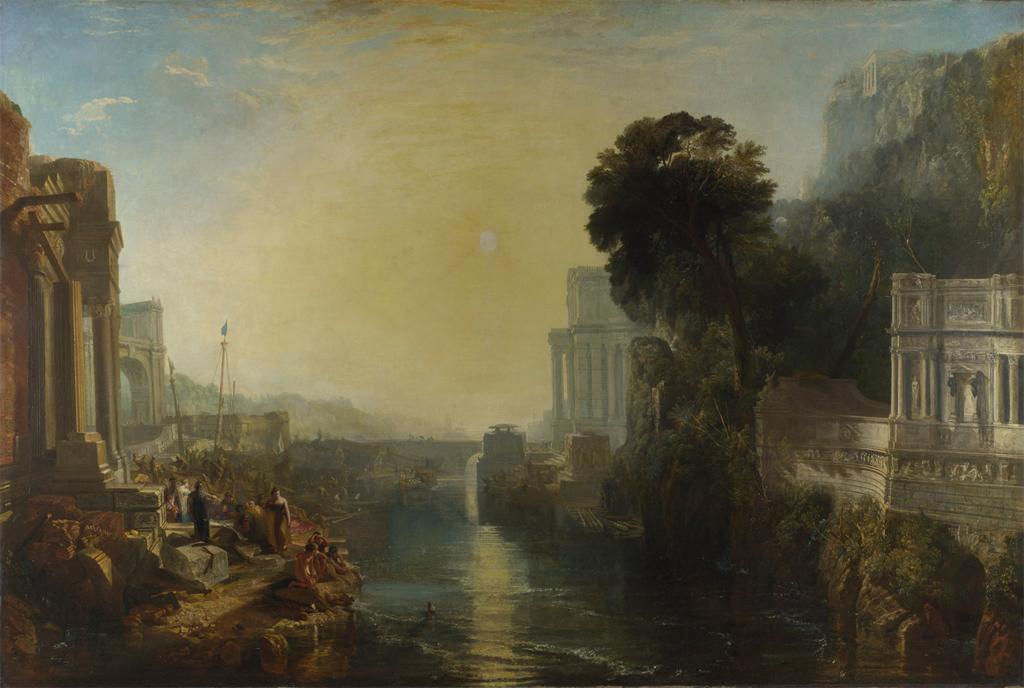Allie Hershey (’25) argues that Vergil subverts our expectations of heroism by not painting Aeneas as a perfectly good Roman. Rather, he portrays him as a realistic role model to Roman citizens. Turnus, on the other hand, while he has many good qualities, represents “force without wisdom.”

Vergil, Aeneid 10.491-10.497, 10.500-10.505, translated by Allie Hershey:
“Arcadians,” he says, “remember this and take back my words to Evander,
I return Pallas to him in the way that Evander deserves.
Whatever honor there is in a tomb, whatever comfort is in a burial,
I give freely. His hospitality to Aeneas will come at no small price.
And saying that, he pressed on the corpse with his left foot,
seizing the huge weight of Pallas’ belt.”
…
Oh, how the human mind is unaware of fate and future fortune and how to show restraint when exalted by success! There will be a time for Turnus, when he wishes to purchase Pallas untouched at a great price, and will hate those spoils and the day.

